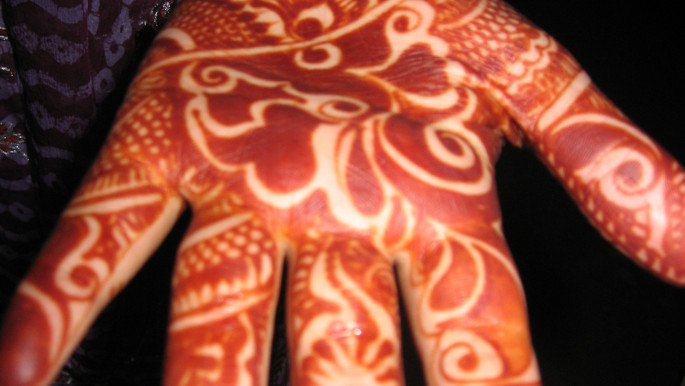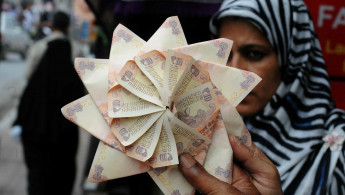The battle of culture and male entitlement: Why women in Kashmir are struggling with marriage
But all the arrangements were brought to a sudden halt when Sheeba's family called off the wedding.
In the time since the two families agreed to the match, Sheeba and her would-be husband had started to talk over the phone. They got the chance to know more about each other. Which is where things started to go wrong. Sheeba was baffled to realise how the boy wanted to change her entire personality.
"From telling me how conventionally I [would] dress to the fact that I should learn driving, he wanted me to change everything about myself," Sheeba remembers.
She grew up in a conservative family, trusting her parents with every decision of her life. Maybe that was the reason that 26-year-old Sheeba did not consider taking up a job even after doing her master's degree in education. When her family started looking for prospective grooms, she obliged, without expressing her opinion.
"He disliked everything about me, from the way I talk to the way I dress in a simple salwar kameez and headscarf. He wanted me to adapt a new lifestyle and transform myself overnight," she says in a dismal tone.
 |
She had grown up with certain beliefs and was now expected to give them up |  |
Sheeba was perturbed at the growing demands from the man who was to be her life partner. She had grown up with certain beliefs and was now expected to give them up. She agrees that she is not up-to-date with the latest fashion trends and she knows that is not a problem.
"I have known a simple life. I never gave much importance to grooming and stuff like that. But owing to the humiliation that I faced, I really wish to have considered these things," she says.
The boy had also demanded material things - a car and a smartphone - from her. At this point, she could sense the trauma her life would become if she did not raise her voice. They decided to sever the newly tied relations.
Initially, she did not disclose her dilemma to her family, but when things started to become intolerable, she revealed everything.
"My mother taught me how important it was to dress modestly, to be a dignified woman in society. But this same society expects the unexpected from you," Sheeba adds.
The whole debacle has shattered her emotionally and she feels that her simplicity cost her. Sheeba's family has now resumed their search for a perfect match, but she is yet to come to terms with what she went through over a span of two months.
But things did not stop with the calling-off of the engagement.
The boy's family sent a notice to Sheeba's family, asking them to hush-up the incident. They even asked Sheeba's family to say it was the boy's side which called off the wedding - threatening a defamation case if they did not agree to lie.
 |
They even asked Sheeba's family to say that the boy's side called off the wedding - threatening a defamation case |  |
 |
|
| Women who suffer the ordeal of rejections say they are forced to abandon their values [Getty] |
She says when a new family comes to see her they will ask why things did not work out earlier.
"I have no answers for anyone," she says.
Sheeba's case is not the only one of its kind in Kashmir.
The period between finding a potential match until the wedding proves to be a traumatising experience for many girls.
And that's not to mention the sense of male entitlement and unrealistic expectations held by many here.
"There are girls who do not maintain themselves or aren't attractive as per the conventional beauty standards. Their families have a tough time looking for matches," says Andleeb Bashir, a sociology researcher at the University of Kashmir.
According to studies on the trend of "late marriages" in Kashmir, physical appearance has ranked alongside unemployment and prohibitive dowry demands in why many women have not been "married off" by their families at a younger age.
Rejection
Bilquees' father was killed in crossfire during the turbulent 1990s. Her family struggled to make ends meet; a mother left to fend for her two daughters and three sons.
When Bilquees grew up, her relatives assumed responsibility for her marriage. She was 28 years old when she became engaged to her cousin.
A month before the Nikaah ceremony, her would-be groom called to say that he did not want to marry Bilquees - because he did not like her appearance.
A few months later, Bilquees was introduced to another young man. The two met and everything seemed fine, until he also decided to call it off, saying that Bilquees' family were not financially well-off enough for him.
A similar thing happened with her third suitor.
"After much struggle, I was married at the age of 32. It has been two years now, but I can't forget that pain of repeated rejections," Bilquees says.
Marriages in Kashmir are mediated through a matchmaker or relatives, as in many other parts of South Asia. Once the agent finds a compatible household, the man's family comes to visit the woman's family. After this, a decision is taken and rituals like the ring ceremony, formal engagement and wedding follow.
"For nearly three years now, I have suffered the trauma of coming before strangers so that they select or reject me for their son," says 28-year-old Asma, a resident of the summer capital Srinagar's uptown Hyderpora district.
 |
For nearly three years now, I have suffered the trauma of coming before strangers so that they select or reject me for their son |  |
People keep "rejecting" her, citing her education, personality and other such reasons. Three matchmakers have descended on her family home with lists of "compatible matches", yet nothing has materialised.
"For some I am overeducated, others find me under-educated. Walking in front of strangers and being rejected on such criteria is humiliating. I have felt like a commodity awaiting a customer's approval," Asma says.
One matchmaker suggested her parents revamp their home if they wanted to marry Asma in to a nice family.
"Every week I bring a new family to see the girl, but they reject her," says Abdul Hamid, the matchmaker who has been suggesting families for Asma's wedlock. "Though it is my profession, I sometimes feel bad for girls when people point to their features, their appearance and lifestyle to reject them."
Women who suffer the ordeal of repeated rejections say they are brought up with certain values and ideas deemed necessary to be accepted by society as a dignified woman. Yet they are expected to shun these beliefs when a man decides to take them as a life partner.
Sana Fazili is from Kashmir and works as a freelance journalist in New Delhi.
Follow her on Twitter: @FaziliSana



